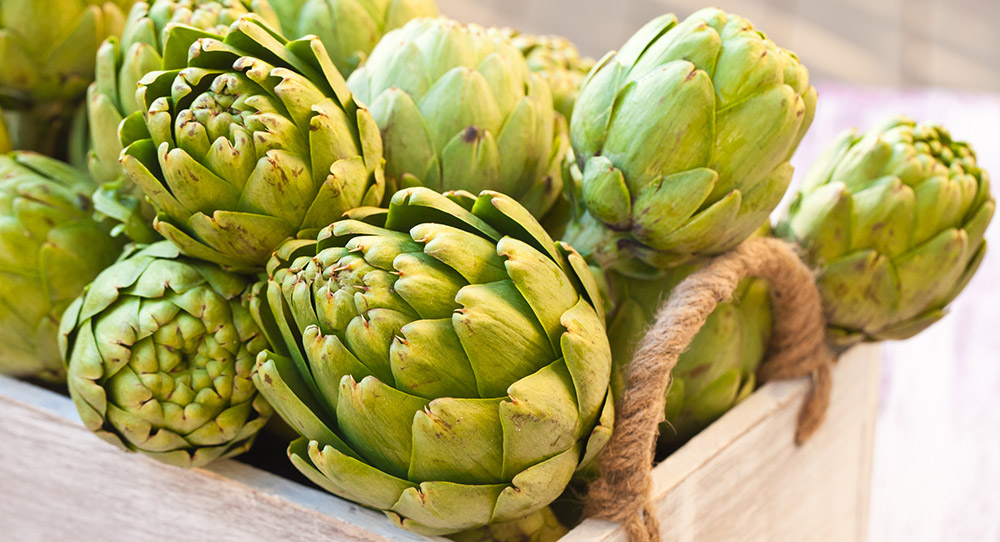Advertisement
It’s Time You Gave Your Heart to an Artichoke
This powerhouse vegetable is a spiky wonder!

Ah, the artichoke. Such an unassuming vegetable—but some of us have lost our hearts to the spiky wonder. Steamed and then dipped, petal by petal, in garlicky olive oil, we eat toward the delectable secret at its heart. The choke’s heart is the delicious prize concealed by its tasty petals.
We’re all familiar with those bottled hearts nestled in olive oil. But the artichoke’s spiky outer layer also offers a taste treat for those who know how to prepare and eat it.
Prepare it
Pull off small or discoloured lower petals before cutting off the stem close to the base. Cut the top quarter and tips off the petals. Rinse under cold running water, letting the water run inside the petals.
Cook it
Place your artichoke on a steamer in a pot of water with lemon slices and other seasonings of choice. Steam for about 25 to 45 minutes, or until the outer leaves can be pulled off easily.
Eat it
Remove one petal at a time. Coat the end that was closest to the stem with your favourite dip, or simply with garlic and extra-virgin olive oil. Place this end in your mouth and pull through your teeth to scrape off the tender parts of the leaf.
Pull off the smaller centre leaves that look translucent and slightly purple to reveal fine hairs that top the heart of the artichoke. Scrape these off with a fork or knife to reveal your prize!
Or try these delicious alive recipes featuring the mighty artichoke:
- Everything but the Kitchen Sink Quinoa Salad
- Farfalle and Seitan Salad with Pecan Pesto
- White Bean Artichoke Wraps
- Mediterranean Farro Frittata
What’s in that hearty choke?
Native to the Mediterranean, the artichoke is actually the bud of a purple thistle flower that grows up to 3 feet (91cm) tall. The ancient Greeks had great respect for the spiky artichoke, using it as a diuretic, a breath freshener, and a deodorant, not to mention as an aphrodisiac. But these days we rely on research to tell us about the potent health benefits of these thorny beauties.
Antioxidants
The US Department of Agriculture published a study of antioxidant levels in 278 fruits and 303 vegetables and cited artichokes as among the antioxidant rich. Artichoke’s antioxidants, in the form of phytonutrients, help protect healthy cells from damage caused by free radicals.
Potassium
A medium artichoke delivers up to 400 mg of potassium, close behind potassium-rich bananas. Important to the function of our nerves and muscles together, potassium is also important in controlling blood pressure by helping to flush excess sodium.
Magnesium
The levels of magnesium in artichoke make these spiky globes an excellent source. A cofactor in more than 300 enzyme systems, magnesium participates in blood pressure regulation and blood glucose control, as well as blood pressure regulation and bone strength.
Vitamin C
Artichokes are also high in vitamin C—one medium artichoke easily beats a medium apple in vitamin C content. Important for a healthy immune system, vitamin C is also critical for protecting against cardiovascular disease, cancer, prenatal health problems, eye disease, and skin wrinkling.
Peel some petals soon!
Can’t wait to lose your heart to artichokes? You’ll have to wait until August for locally grown varieties, but California artichokes should be available soon!







